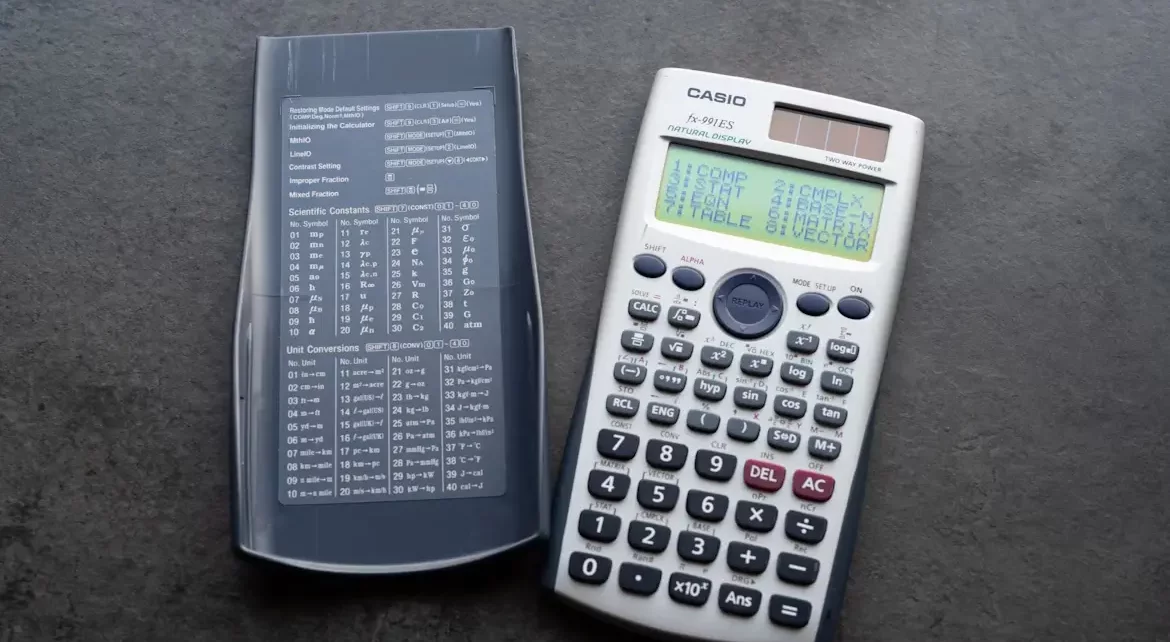We’re surrounded by lots of “smart” things: phones that do more than we ever expected, apps that solve equations, graph functions with a tap, or even voice-command calculators. With all that power in our hands, it’s fair to wonder—are old-school electronic calculators still useful? Turns out, the answer is yes.
The Invention of Electronic Calculators
The first electronic calculators were developed in the early 1960s, transforming computation from mechanical gears to electronic circuits. Early desktop models, like the UK’s ANITA (1961) and Texas Instruments’ transistorized calculators in the mid-1960s, paved the way for portable devices. Casio, a Japanese company, played a key role by creating the first practical compact calculators in 1957 and later developing fully electronic pocket calculators in the 1970s. These innovations made calculations faster, more accurate, and accessible to students, professionals, and households alike.
Why Electronic Calculators Are Still Useful
They are used so much not just for nostalgic reasons. Here’s why these humble devices remain relevant, even as our gadgets get smarter.
1. Clarity & Zero Distractions
Open a calculator: No pop-ups ads, No notifications, just buttons and numbers. That single-task focus makes calculators powerful, especially when you’re trying to concentrate—studying, working, or examining data.
Smartphones are remarkable—but with multitasking comes potential for distraction. For many, a calculator is like a mini oasis of focus.
2. Education & Exam Rules
Here, calculators have “official” status. Many exams ban or restrict smartphone use but allow specific calculator models. For students doing math, science, and accounting, these devices are essential.
Even teachers or exam boards argue that calculators help with learning processes, not just results. Pressing real buttons, seeing screen feedback, and having a device you can “trust” without worrying about battery apps crashing is sometimes preferable.
3. Durability, Power, and Independence
Calculators often run long on battery or even solar power. You’re not updating firmware, worrying about OS patches, or being forced into app upgrades.
That kind of reliability is hard to beat. For users in areas with unstable electricity, for those who dislike dependence on software that might be updated or deprecated, calculators deliver straightforward utility.
4. Relating It to Broader Digital Dependence
This is where things get interesting. The shift toward digital tools isn’t always smooth or perfect. Consider Making Tax Digital (MTD) , the UK government’s initiative to make tax reporting for individuals and businesses mostly digital. There are real worries about time, cost, and reliability.
For example, the House of Lords has expressed concerns that HMRC is “contracting out its job” over Making Tax Digital for Income Tax. This essentially reflects how even serious institutions are pushing back when systems become complicated, unreliable, or exclude those who prefer simpler methods.
That tension mirrors what many feel about electronic calculators: even though digital tools offer many features, sometimes the more you depend on them, the more risk you expose yourself to—whether it’s software glitches, subscription costs, or just the fragility of digital ecosystems.
5. Use in Professional & Niche Contexts
Calculation-heavy fields (engineering, accounting, scientific research) often prefer purpose-built calculators. Functions, tactile keys, accuracy, precision—these devices are built for those needs.
Even outside those fields, people who work with numbers day in and out tend to favor calculators over phone apps for reliability and speed.
6. Simplicity is Underrated
Finally, there’s something psychologically satisfying about simple tools. A calculator doesn’t try to do too much. It does one thing well. For many, that’s enough.
When technology grows complex, sometimes people long for tools that don’t ask for permissions, don’t show notifications, or don’t need regular updates. Calculators deliver exactly that.
Final Thoughts
So yes — electronic calculators are still useful and relevant, maybe more so than you’d think in this smartphone era. They offer focus, reliability, long life, and a kind of peace of mind that comes from using something simple and dependable.
In a time when digital solutions like Making Tax Digital face scrutiny and concern — even from high levels of government—it’s worth remembering that sometimes, old but good tools still hold their place.
High Speed PCB Design: Essential Wiring Techniques for Optimal Performance
Choosing the Right Materials for Reliable Electrical Performance
How Billboard Manufacturers Are Innovating Outdoor Advertising

